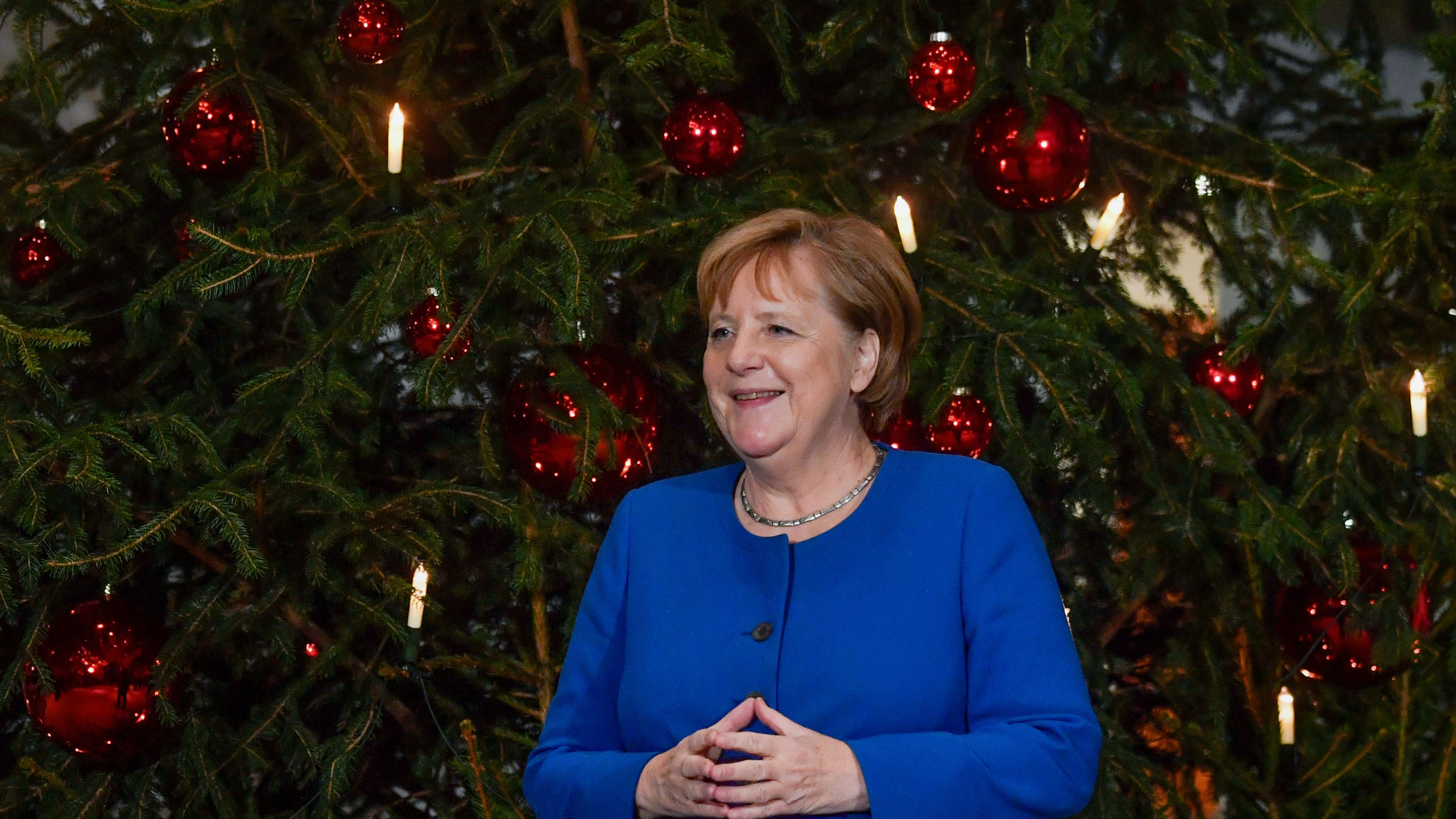German coalition on the brink of collapse after junior party veers left
New SPD leaders prepared to pull the plug on controversial partnership

A free daily email with the biggest news stories of the day – and the best features from TheWeek.com
You are now subscribed
Your newsletter sign-up was successful
The future Angela Merkel’s government has been thrown into doubt after her junior coalition partners elected a new leftwing leadership duo.
Norbert Walter-Borjans and Saskia Esken, from the left of the Social Democratic Party of Germany (SPD), have called for major policy concessions from Merkel’s Christian Democrats (CDU), and say they are prepared to pull the plug on the partnership.
Reuters reports that both are “strong leftist critics of the coalition” and their election risks “possibly putting the country, Europe’s largest economy, at a political crossroads”.
The Week
Escape your echo chamber. Get the facts behind the news, plus analysis from multiple perspectives.

Sign up for The Week's Free Newsletters
From our morning news briefing to a weekly Good News Newsletter, get the best of The Week delivered directly to your inbox.
From our morning news briefing to a weekly Good News Newsletter, get the best of The Week delivered directly to your inbox.
“Their ascendancy raises the chances of an early election or minority government if the SPD leaves the coalition, which could trigger political instability at a time when the far-right Alternative for Germany (AfD) has become the country’s third-largest party” says the news agency.
With support for the SDP at near-record lows, the leadership contest was coloured from the start by a struggle over the party’s political direction and outlook.
“The party’s leftwing has long argued that the SPD needs to break with Merkel at the earliest opportunity, and try to recover and rebuild in opposition”, says the Financial Times.
–––––––––––––––––––––––––––––––For a round-up of the most important stories from around the world - and a concise, refreshing and balanced take on the week’s news agenda - try The Week magazine. Start your trial subscription today –––––––––––––––––––––––––––––––
A free daily email with the biggest news stories of the day – and the best features from TheWeek.com
The newspaper reports that critics of SPD centrists who have vowed to remain part of the coalition “believe the party’s political profile has become increasingly hard to distinguish from that of the chancellor’s centre-right bloc, leaving rivals like the Greens to scoop up traditional SPD voters”.
With victory for the left, The Guardian reports that Germany “is facing the prospect of months of political uncertainty with the collapse of the coalition, which has been fragile since its inception after the 2017 election, a growing likelihood”.
“It also raises the prospect that Merkel, who has said she will not run for another term in office, will face an earlier exit from the political stage than she intended”, the newspaper adds.
Yet the marriage of convenience could yet surive. Writing in Deutsche Welle, political correspondent Sabine Kinkartz says that “given that Germany will assume the EU Council presidency in 2020, and given the poor polling results of the SPD and CDU, neither party is keen to hold an early election.”
-
 The environmental cost of GLP-1s
The environmental cost of GLP-1sThe explainer Producing the drugs is a dirty process
-
 Nuuk becomes ground zero for Greenland’s diplomatic straits
Nuuk becomes ground zero for Greenland’s diplomatic straitsIN THE SPOTLIGHT A flurry of new consular activity in Nuuk shows how important Greenland has become to Europeans’ anxiety about American imperialism
-
 ‘This is something that happens all too often’
‘This is something that happens all too often’Instant Opinion Opinion, comment and editorials of the day
-
 Epstein files topple law CEO, roil UK government
Epstein files topple law CEO, roil UK governmentSpeed Read Peter Mandelson, Britain’s former ambassador to the US, is caught up in the scandal
-
 Iran and US prepare to meet after skirmishes
Iran and US prepare to meet after skirmishesSpeed Read The incident comes amid heightened tensions in the Middle East
-
 Israel retrieves final hostage’s body from Gaza
Israel retrieves final hostage’s body from GazaSpeed Read The 24-year-old police officer was killed during the initial Hamas attack
-
 China’s Xi targets top general in growing purge
China’s Xi targets top general in growing purgeSpeed Read Zhang Youxia is being investigated over ‘grave violations’ of the law
-
 Panama and Canada are negotiating over a crucial copper mine
Panama and Canada are negotiating over a crucial copper mineIn the Spotlight Panama is set to make a final decision on the mine this summer
-
 Why Greenland’s natural resources are nearly impossible to mine
Why Greenland’s natural resources are nearly impossible to mineThe Explainer The country’s natural landscape makes the task extremely difficult
-
 Iran cuts internet as protests escalate
Iran cuts internet as protests escalateSpeed Reada Government buildings across the country have been set on fire
-
 US nabs ‘shadow’ tanker claimed by Russia
US nabs ‘shadow’ tanker claimed by RussiaSpeed Read The ship was one of two vessels seized by the US military